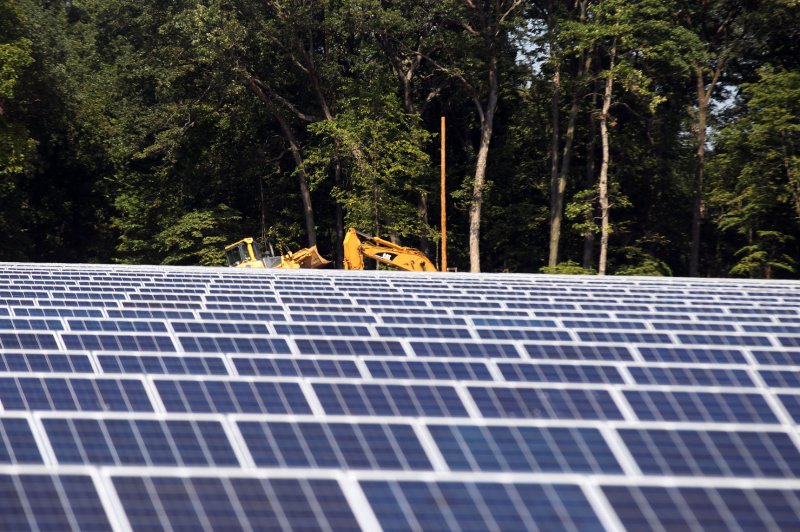German energy company E.ON said its putting its past behind it as it focuses on a changing energy landscape. File photo by Bill Greenblatt/UPI. |
License Photo
March 15 (UPI) -- German energy company E.ON said Wednesday it's been able to free itself from past burdens and was positioned for growth in a "new energy world."
The company said it recorded a loss for full-year 2016 of $17 billion, reflecting a growth phase characterized by a shift away from fossil fuels for electricity generation and $2.1 billion paid to a domestic effort to phase out nuclear energy.
"Being freed from past burdens leads to net loss of roughly $17 billion but also lays foundation for future growth," CEO Johannes Teyssen said in a statement.
German Chancellor Angela Merkel ordered eight of the country's 17 nuclear reactors closed by the end of 2011 following the Japanese nuclear disaster and a total shutdown by 2022. E.ON said part of the loss could be attributed to retooling in the changing domestic landscape as Germany emerges as a regional leader in renewable energy development.
The company said last year was one of transition marked by an emerging focus on renewable energy.
"The impact on our balance sheet marks a turning point and clears E.ON's way into the new energy world," Teyssen said.
E.ON's emphasis on transition follows a similar report from German energy company RWE, which this year marked its shift in the low-carbon direction by working with port officials to create infrastructure to fuel vessels with cleaner-burning liquefied natural gas. RWE said its green energy division, Innogy, put the parent company "on a solid financial basis."
E.ON said its put together a package of measures aimed are reducing its debt load, including a transfer of its stake in the Nord Stream pipeline from Russia to the German market into a pension fund and selling off some of its non-core assets.
The company reduced its investment budget for the next three years by 20 percent to $8.5 billion and expects net income for 2017 at $1.4 billion.















